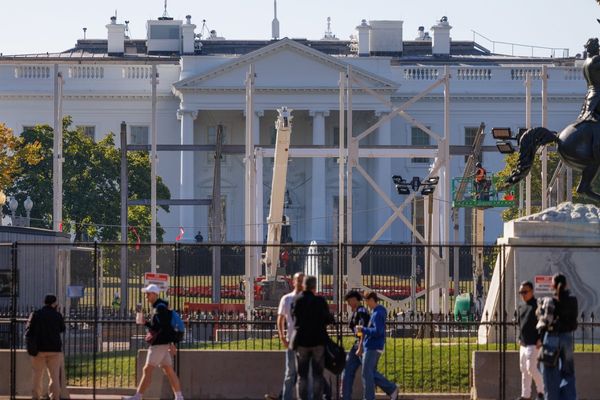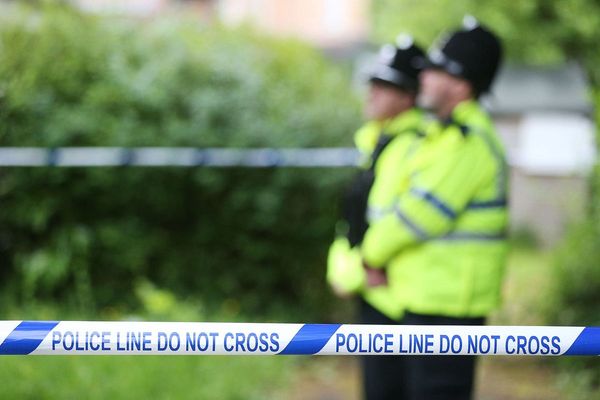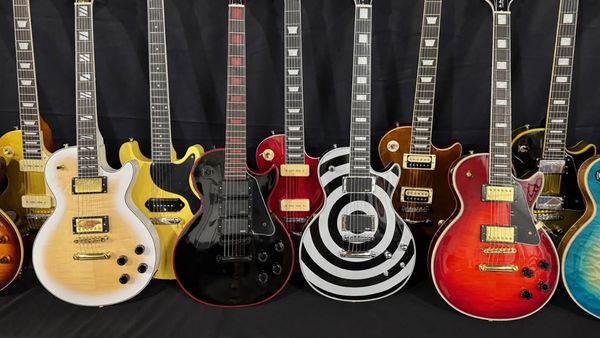WASHINGTON _ President Donald Trump's extraordinary remarks Monday, siding with Russian President Vladmir Putin's denials of 2016 campaign meddling over U.S. intelligence agencies' conclusion, has left U.S. and foreign diplomats worried that the United States will no longer be a reliable partner, will no longer defend other countries and will no longer stand up to its adversaries.
Trump, they say, is clearly out on his own with his controversial views but as president of the United States he could change decades of precedence.
"By walking away from that in such a blatant way in front of the guy who we all know was responsible, he has put this country in a position that I cannot think of an American president ever putting us in," said James Jeffrey, who served in the administration of Republican President George W. Bush as U.S. ambassador to Iraq and Turkey and deputy national security adviser. "We're not going to be able to mobilize anybody for anything after this unless he shows real toughness toward Russia, which kind of undercuts the whole purpose of going over there."
Jan Lipavsky, who is vice chairman of the defense committee in the Czech Republic's lower house of Parliament, said Trump views a "Big America" that doesn't need friends.
"If he loses the allies, by the way, he will realize the strength of the U.S. may diminish in many ways," Lipavsky said. "The U.S. needs trade. The U.S. needs allies around the world."
The best diplomats say they can hope for now is a schizophrenic U.S. foreign policy, with other administration officials, including Secretary of State Mike Pompeo and national security adviser John Bolton, reining Trump in or even working against Trump's stated wishes.
Ojars Kalnins, a Latvian parliamentarian and former ambassador to the United States, said many Europeans hope more experienced policymakers around Washington will "temper things" with the White House on the importance of U.S. alliances. "From the Pentagon, from the State Department, from all the congressmen and senators we speak to, they realize this very clearly," Kalnins said. "There's a clear understanding."
Trump, who stood alongside Putin at a news conference Monday, said that both the United States and Russia were responsible for their poor relationship and that Russia may not have interfered in the 2016 presidential elections despite contrary assessments by the U.S. intelligence community and Republican-led Congress.
"I have great confidence in my intelligence people, but President Putin was extremely strong and powerful in his denial today," he said.
Putin said he wanted Trump to win but denied interfering in the election and offered to let U.S. officials work with his government on their investigation into the 2016 election.
Hours after the news conference, Dan Coats, director of national intelligence, issued a statement that seemed to contradict Trump.
"The role of the intelligence community is to provide the best information and fact-based assessments possible for the president and policymakers," he said. "We have been clear in our assessments of Russian meddling in the 2016 election and their ongoing, pervasive efforts to undermine our democracy, and we will continue to provide unvarnished and objective intelligence in support of our national security."
"Frankly, the best we can hope for is to keep up this somewhat schizophrenic approach where the heads of agencies, the secretary of State, the secretary of Defense, the vice president, everyone else in government continues to listen to and shore up the intelligence agencies and get tougher and stronger in preparation for the next election even if we obviously don't have a president who shares the views of the rest of his government," said Michael O'Hanlon, a member of the external advisory board at the CIA from 2011 to 2012 and now a senior fellow at the Brookings Institution.
The news conference came after Trump and Putin met for two hours in their first formal summit in Helskinki, Finland, to talk about a variety of national security issues.
Former Defense Secretary Chuck Hagel, a Republican former senator from Nebraska, said that Trump failed America. "It's a sad day for America," Hagel told CNN. "It's a sad day for the world."
Diplomats from around the globe tuned in to the news conference, eager to see what Trump would say about Russian campaign meddling. Some were disappointed but not surprised, since Trump has said many of those things before _ but not on foreign soil standing next to Putin.
"This has been pretty much standard stuff for two years," said James Collins, a former U.S. ambassador to Russia.
Trump has suggested that Crimea, a territory in Ukraine annexed by Russia, is now part of Russia, and that Russia should be invited to rejoin the G7, the gathering of the globe's largest economies. But Monday, Putin said Trump reiterated that Russia took Crimea illegally.
A Ukrainian politician, Hanna Hopko, who like the other parliamentarians was in Washington for an event at the Atlantic Council, a nonpartisan think tank, said Ukrainians were hoping for Trump to demand the return of Crimea, something that would amount to "a very firm position from the United States." Hopko, who chairs the foreign affairs committee of Ukraine's unicameral parliament, said she and other Ukrainians were disappointed.
The Trump administration has sanctioned Russia for its actions in Crimea, election meddling and overall aggression, sent lethal aid to Ukraine and expelled Russian diplomats, but Trump's rhetoric has not matched the action.
Democrats and some Republicans have criticized Trump for his open admiration for Putin. He called to congratulate Putin on what was widely considered his sham election, invited him to the White House for a meeting and just this week repeatedly praised him for hosting the World Cup. "It was really one of the best ever," he said. "It was a great job."
"It's somewhere between worrisome and terrifying," said Dan Shapiro, the U.S. ambassador to Israel under President Barack Obama. "Because in Europe it has the potential to embolden Russia to threaten other eastern and central European nations as it has Ukraine ... . It tells our traditional allies that they can't count on the Untied States to uphold our traditional common interests. It tells those same allies that we prioritize finding common ground with Russia on Russia's terms over maintaining our historic commitments to them."
Tarun Chhabra, who served on the National Security Council under Obama, said it will take time to determine the impact of Trump's remarks and whether his go-it-alone policy becomes part of U.S. policy.
"Those are the future plans that Putin wants to see."







